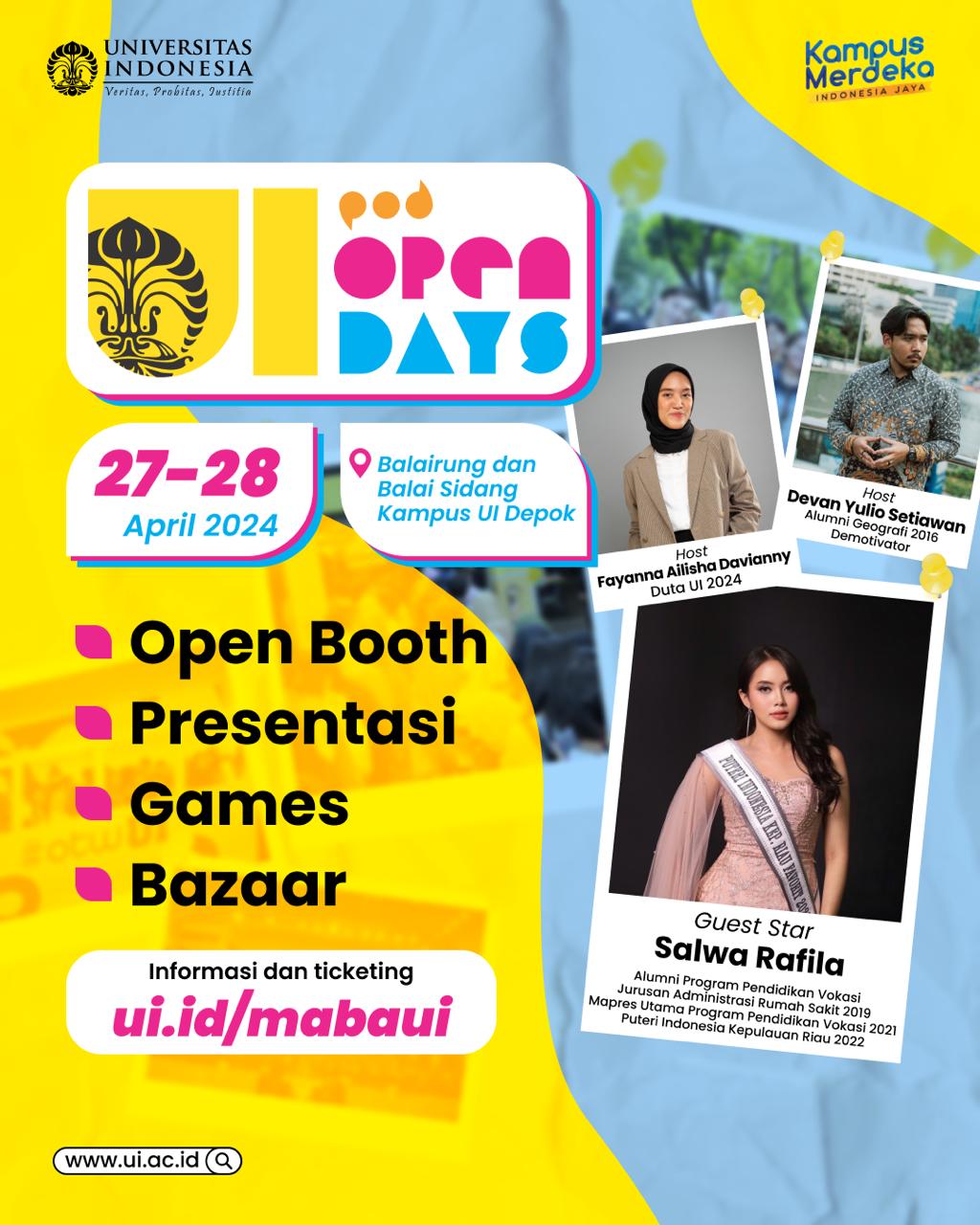“Based on VN Express International data for 2023, Indonesian tourism is in 5th position after Malaysia, Thailand, Singapore, and Vietnam with 11.7 million foreign tourists. Vietnam is currently a threat to Indonesian tourism because many new destinations have gone viral, which have been prepared by the government and related parties,” said Dr. Diaz Pranita, M.M., a tourism expert who is also a lecturer in Tourism Business Management, Vocational Education Program, Universitas Indonesia (UI).
She demanded actions from the government to increase the community’s interest in Indonesian tourism. The Ministry of Tourism and Creative Economy (Kemenparekraf) targets the movement of domestic tourists to reach 1.5 billion and the number of foreign tourist visits to reach 14.3 million people. According to Dr. Diaz, this can be achieved through maximizing Indonesia’s natural and cultural heritage as the main attraction for local and foreign tourists.
“Cultural and natural diversity is an important factor for differentiating tourism products or offers, so the tourism experience in Indonesia cannot be found anywhere else. Aquatic areas, for example, can be used as a magnet for tourists because Indonesia has many interesting destinations, such as the coral triangle, troughs, rafting spots, and beaches with the highest rolling sea waves in the world in Mentawai, Nias, Rote, and Bali,” he said.
However, Dr. Diaz assesses that Indonesia’s tourism potential has not been utilized optimally. Indonesia’s tourism competitiveness is still weak, especially regarding accessibility, infrastructure, tourist facilities, tourist attractions management, tourist amenities provision, and human resource (HR). Airline and hotel capacity in several locations is also still limited. Public transportation is not yet integrated, and many destinations are not even digitally recorded, making it difficult to make real-time reservations.
In fact, running a tourism business can support the economic sector. By setting high standards for infrastructure, facilities, and services, foreign tourists will gain memorable experiences and will recommend Indonesian tourist destinations to their friends or relatives. Therefore, it is necessary to promote tourist destinations effectively and efficiently so Indonesian tourism can be recognized globally.
“It is necessary to identify who the market is, what products are preferred, and the strategic marketing plan. Moreover, consistency, commitment, and collaboration between policy stakeholders is needed,” said Dr. Diaz.
Besides product and market identification, service is also an important aspect of tourism promotion. Indonesian people are known to be friendly and can add value. However, this friendliness must be balanced with HR skills, including language mastery. English should be a basic skill for tourism service.
Dr. Diaz also mentioned sustainability as a basic element of current tourism development, including environmental and economic sustainability for local communities. “The government successfully developed tourist villages in Penglipuran Village, Bali, and Wae Rebo Village, East Nusa Tenggara. This shows tourism development does not only require digital transformation, but also sustainable green transformation,” he said.



